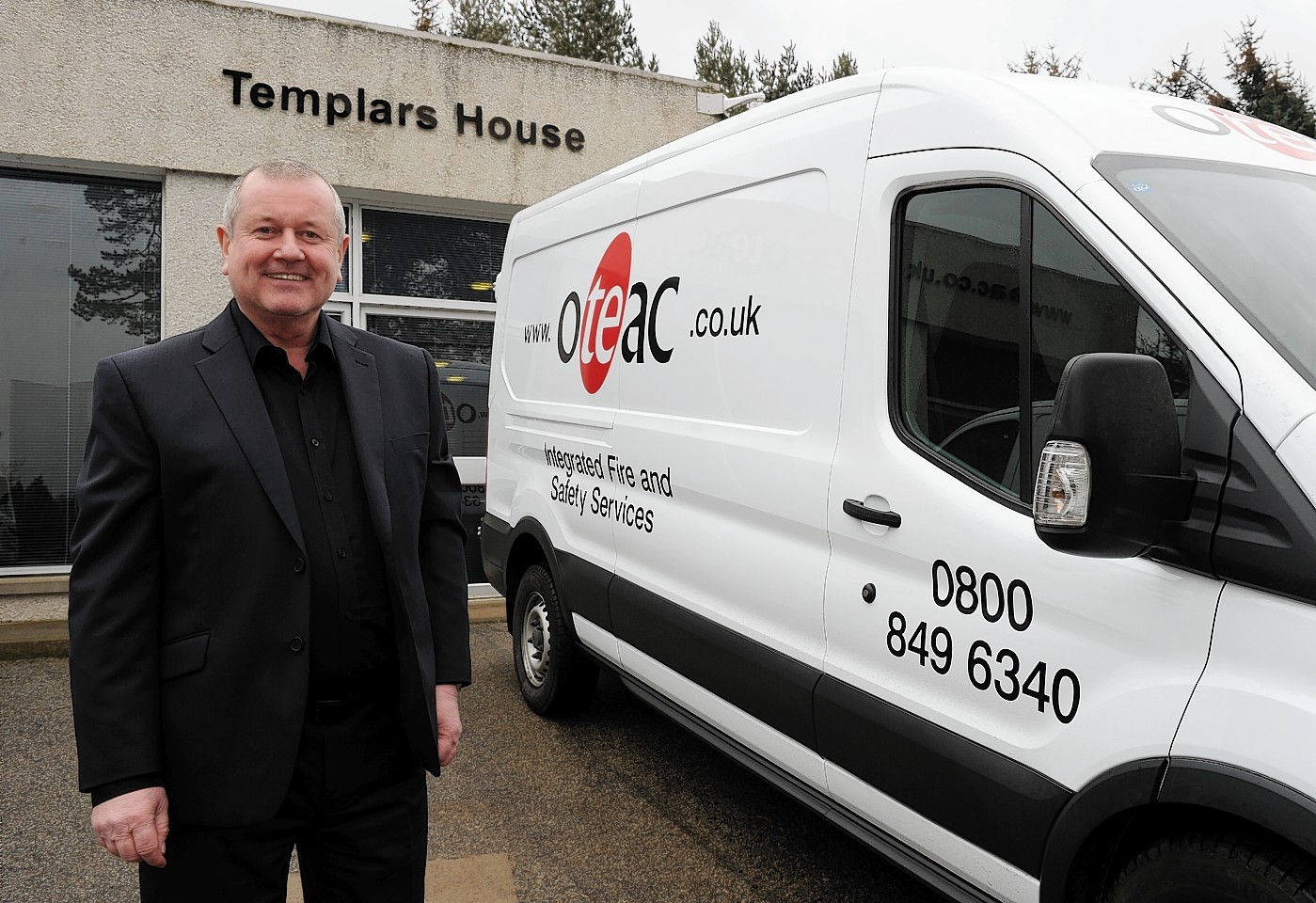Come to Aberdeen for a holiday and become a fireman, it certainly worked out well for Bill Hogarty.
As a planning graduate in his early-20s, Mr Hogarty was so taken by the Granite City during a visit that he decided to stay.
It was clearly a very different time because Mr Hogarty was rapidly running out of money.
“I saw an advert for the fire service in the job centre, which at the time was on Union Street, near a C&A shop that’s no longer there, so I joined Grampian Fire Brigade, as it was then,” Mr Hogarty said.
After two-and-a-half years in the service, Mr Hogarty decided to try his hand in the commercial world.
About thirty-five years on he is chief executive of Oteac, an Aberdeenshire-based fire and safety engineering services company.
In between, his chance career in the fire industry took him up the ladder at several global companies and includes an 18-year spell at Wood Group, where he worked in inspection and maintenance, before becoming sales director.
But Mr Hogarty, 58, is turning his attention from ladders to mountains.
The father-of-three is in training ahead of the daunting King of the Mountains race in May, with the proceeds from his efforts going to charity.
The 62mile-long event takes riders over the steep Gairnshiel Pass, which climbs to a cramp-inducing 1,659ft above sea level.
“I cycled from Alford to Bellabeg and back on Sunday. That’s 38miles, but I need to do more than that, it’s not even two-thirds” of the distance, Mr Hogarty said.
A keen skier, he might have to display some of Oteac’s attributes in his bid to stay ahead of competitors on the steep climbs that await him.
Oteac, which is in Maryculter and specialises in integrated fire and safety engineering services, can compete with bigger international rivals because it is “nimble, flexible and quick,” said Mr Hogarty, who made the step up from managing director to chief executive in 2013.
“No one player has an absolutely dominant position in the market,” he said. “It takes global companies longer to make decisions, whereas we can make them quickly” because our chain of command is smaller.
“We also retain a lot of staff as well, so they may already have worked on platforms that they need to service” in future.
Oteac, founded in 1985, has grown in recent times to employ about 79 staff, a number of whom are at the company’s new office in Leith, Edinburgh.
The branch, which will focus on the marine services market, is “showing positive shoots of growth,” having already booked four to five orders for vessels, Mr Hogarty said.
About a third of Oteac’s business deals with public services, providing fire alarms, cctv and lighting at schools, shopping centres, including Union Square in Aberdeen, Pittodrie Stadium.
The rest is devoted to the offshore sector, which at present involves a large amount of retrofitting of fire and safety equipment, given the age of the some of the installations.
Oteac’s independent status is a plus, as it means the company can shop around for the best product to suit its clients, rather than being restricted to dealing with one supplier.
Even at a time when oil and gas companies are looking to cut costs amid a low oil price environment, Mr Hogarty is confident there will be no tail-off in Oteac’s work in a sector where safety comes first.
“We’re fortunate that it’s a regulated environment. Oil and gas installations are high risk so safety never is compromised.
“Certainly what we will find is that we need to justify what we propose in our designs to show that we’re offering value for money.”
“It is a challenging environment, but with our skills and experience, we’re confident we can see our way through.”
One way of lowering costs, according to energy chiefs, is to take innovative skills and techniques used by other industries and adapt them to meet the needs of the oil and gas sector.
Mr Hogarty knows all about breaking into the sector from the outside and Oteac is on board with the idea.
Oteac recently appointed a forensic scientist as its new trainee commercial manager, and is also looking into the possibility of recruit engineers from other industries.
“The world’s forever spinning and we’re forever learning,” Mr Hogarty added.
